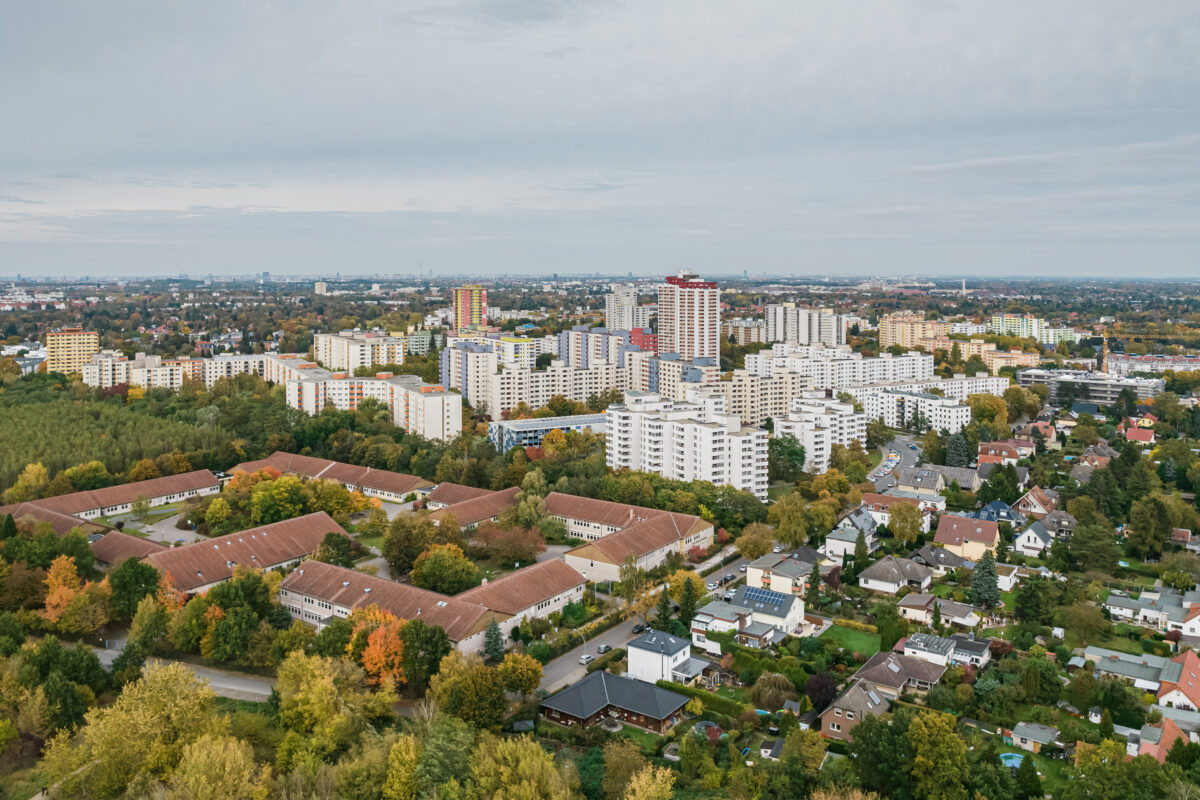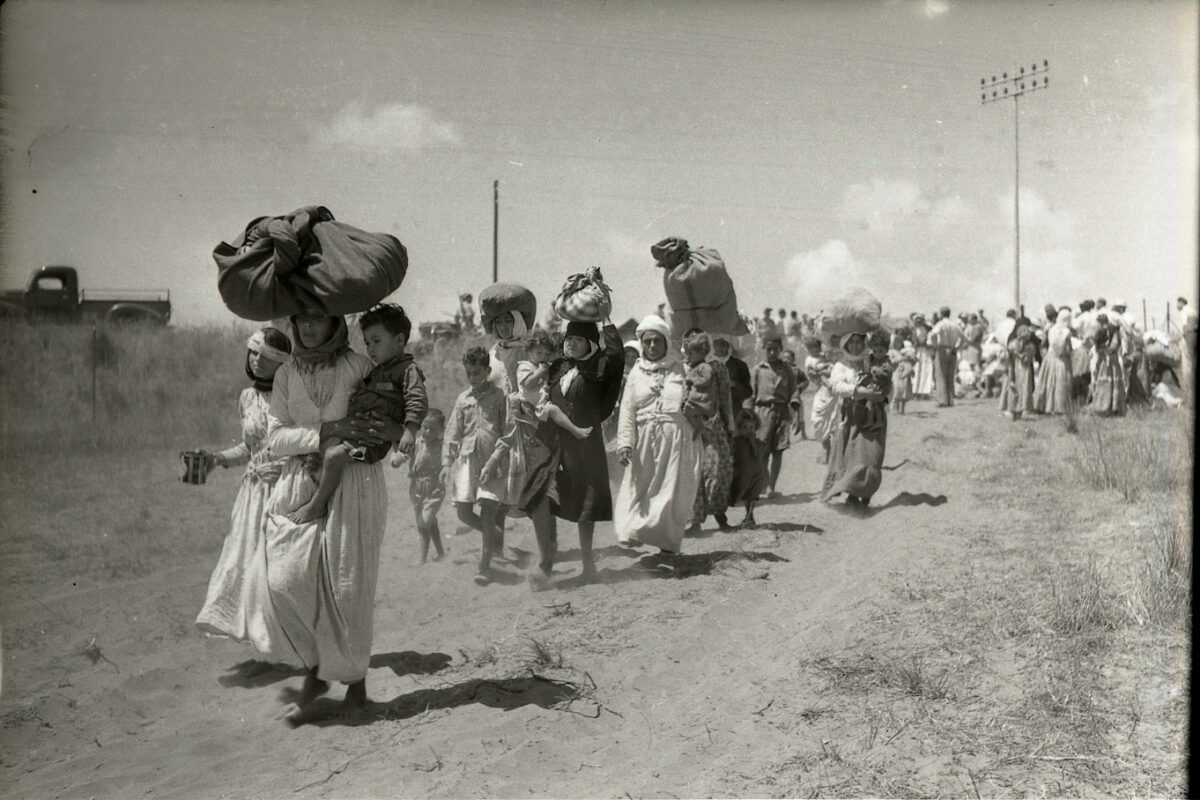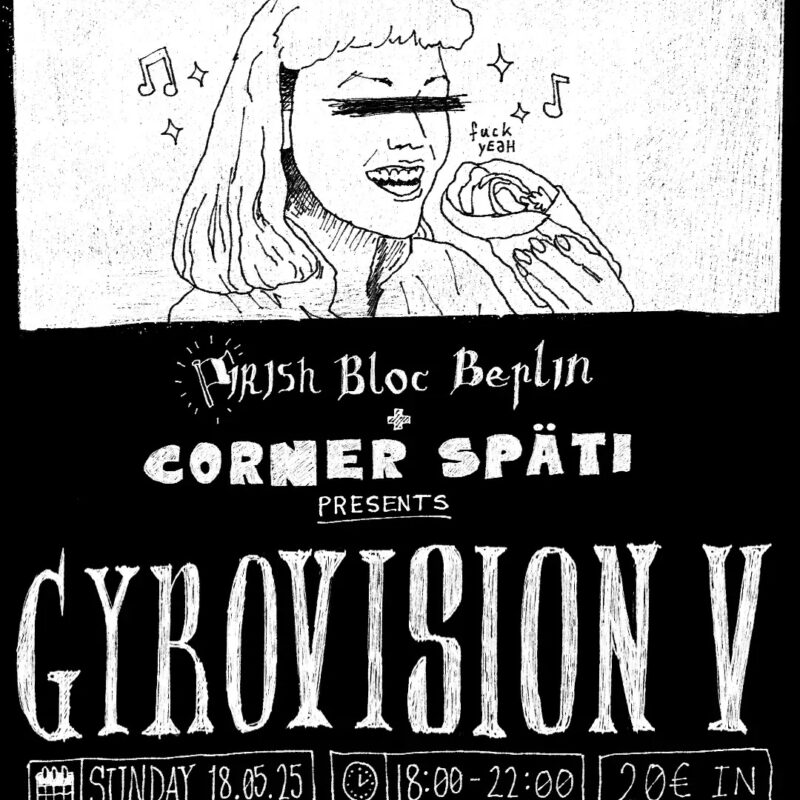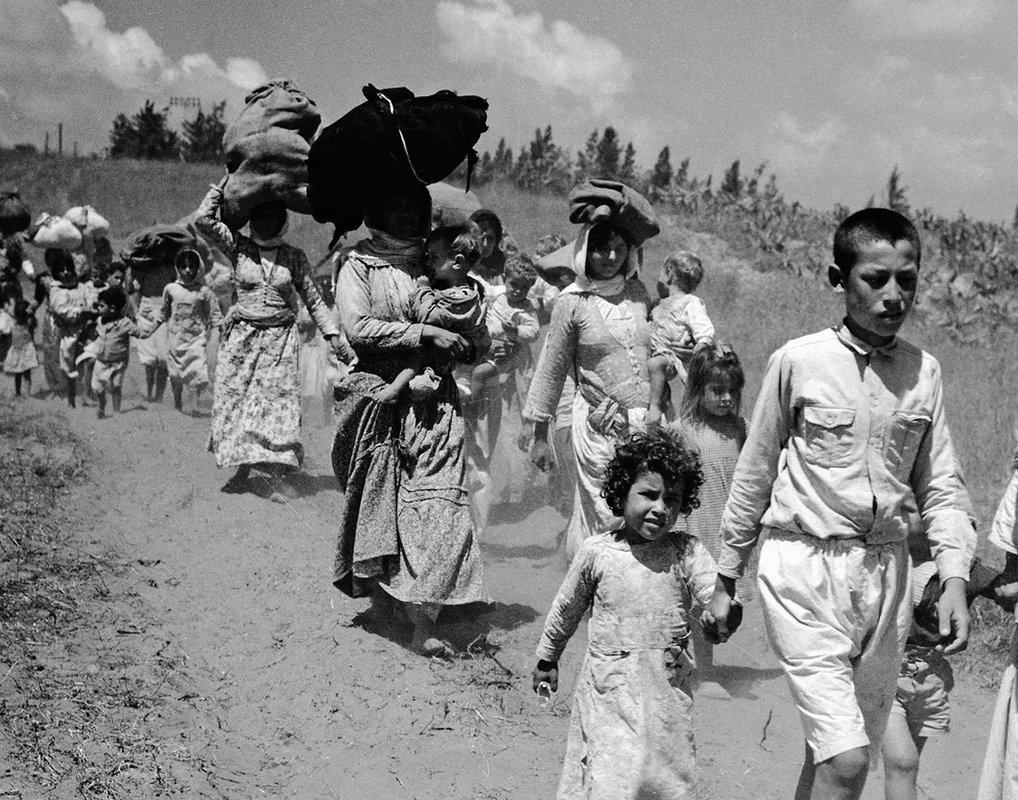On election night in February, one figure stood out for me: the number of workers voting for the AfD. According to exit polling, the far-right party took 38% of manual workers’ votes nationally, ahead of the Christian Democrats (22%) and the Social Democrats (just 12%). In the AfD’s strongholds, the figure must be even higher.
Alongside an ideologically motivated core, the AfD is clearly attracting the votes of substantial numbers of workers. That sets it apart from classical fascism, whose base was the petty bourgeoisie and the lumpenproletariat (the middle class and the unemployed).
The Trade Unions
Support for the AfD raises new and challenging questions within the trade unions, although there is scant public discussion about them. As one trade union official in eastern Germany told me, “Union members voting AfD is nothing unusual these days.” In fact, there are workplaces where AfD supporters are among the most bolshy. Notably, these tend to be AfD voters but rarely members.
There are also places where significant numbers of trade union members reject their union’s opposition to the party. The metalworkers’ union is reported to have lost members after its flags were seen at the blockade of the AfD’s national conference in January. At the mass demonstrations against the AfD before the elections, led by Die Grünen and Die Linke, the trade unions seemed to be downplaying their visible, organised presence. That said, a large proportion of the participants were also union members.
Electoral Geography
The electoral geography tells us more. The AfD’s best results read like a map of the worst byproducts of neoliberalism: the deindustrialised east (but not prospering Leipzig and Dresden), the poorest cities (Gelsenkirchen), and the struggling peripheries (the Bavarian Forest). The same applies within the cities, too: few AfD votes in Berlin’s gentrified middle-class quarters, many in the high-rise estates on the outskirts (Marzahn, Hellersdorf, Hohenschönhausen). The latter used to be solid strongholds for Die Linke.
The pattern reappears within Berlin’s boroughs, too. Prenzlauer Berg is green, but its neglected social housing is an island of AfD blue. In Tempelhof, Spandau, and Neukölln, the AfD’s best polling station results were all in medium—and high-rise housing estates on the city’s outer periphery—Waldsassener Strasse (28.4%), Südekumzeile (31.2%), and Frauenviertel (25.0%), respectively.
The Provinces
Where I live – in small-town Brandenburg – the AfD got 35% across the board. For the moment, there is little sign of a change in the atmosphere. There is not much talk about politics at all. When there is, it is generally to grumble about the price of food, second-hand cars, petrol and butter, wind turbines, and the Greens’ heating regulations (Heizungsgesetz). The farmers’ protests in early 2024 were a talking point and were seen positively. In some quarters, there is anger and disdain over Germany’s role in the Ukraine war. There are milieus where resentment over the Covid lockdown policies is still raw. Intriguingly, there is a conspicuous overlap between the anti-war and Covid-sceptical circles.
There is certainly grumbling about refugees, too. It would be mistaken, though, to attribute every objection to animus against people of colour. Part of the sentiment mirrors the discussions in Germany’s Turkish communities, for example, where the idea that immigration should be reduced is not uncommon. Some of those complaining about hotels being converted into refugee accommodation point to the very large sums of public money being funneled into the hands of a few very wealthy property owners.
I witnessed an interesting conflict in 2017 when the refugee issue was still new. A petition went around one village, objecting to the local hotel being converted into mass accommodation. It turned out that the council had initially promised to rent people’s spare rooms and underused holiday lets to house refugees. Locals who had looked forward to a little extra income were aggrieved that the decision had been overturned. It’s complicated…
Contradictory Ideas
Are the AfD’s voters all committed reactionaries and racists? Is it really that simple? An exit survey gives us some insights. 18% of AfD voters think it would be good if only Germans lived in Germany. 9% want all migrants to leave Germany, even those who are naturalised. These sentiments give us an indication of the size of the hardcore, out-and-out racists. Those figures would represent an election result of 4% and 2%, respectively. Which is roughly what open neo-Nazi parties got in the past.
On the other hand, 42% of AfD voters think the party should distance itself more clearly from the extreme right. Moreover, 84% say the party is in the middle of the political spectrum, not on the right. 85% say it is the only party they can vote for to protest against the established parties. 39% said they voted AfD because they were disappointed with other parties. The figures are contradictory in places, but that is no surprise.
AfD voters worry more about making ends meet than the supporters of any other party. Three-quarters of them fear they won’t be able to pay their bills or keep up their standard of living. The AfD attracts more men than women. Age-wise, it is strongest in the 25-59 group and notably weak among the retired.
It is hard to say how closely the AfD’s voters are connected to the party. There is little sign that the ties are generally strong.
We must consider the AfD’s significant vote as a symptom of broader underlying developments. On the one hand, large sections of the population are deeply alienated from all the established parties. These include significant parts of the ‘classical’ working class – not just manual workers but all those furthest from the credentialed professions. Alternatively, much of what currently passes for ‘the left’ revolves around the ‘better’ white-collar occupations (and, to an extent, even managerial). Geographically and socially, there is little contact between the two. Further, on the ‘left’, there is often little understanding that material issues are of genuine importance (pay, energy bills, food prices).
Frustration and Alienation
A significant section of the working class has had enough of the way things are, the stress and insecurity of existence under neoliberalism: low pay, stagnant or falling standard of living, food inflation, fuel poverty, difficulty getting medical appointments, the prospect of poverty in old age, fifteen euros an hour for skilled factory work; the list is endless.
This boils down to a deep sense that ‘they’ just don’t care about ‘us’. ‘They’ are all the mainstream parties and most (if not all) state institutions. There is a deep alienation from the established parties and the mainstream political process as a whole. This lies behind much of the AfD vote, non-voting, and part of the BSW vote.
Conversely, any party that parleys with the establishment is rejected. That certainly applies to Die Linke, which has placed great emphasis on participating in state governments. The recent Bundestag election saw its former strongholds in eastern Germany reduced to university towns and student quarters. It may have laudable slogans and policies but is not perceived as credible about implementing them. After all, the mainstream parties talk a good game, too. For many who oppose Germany’s shockingly rapid militarisation, Die Linke’s vote for war credits was the last straw. But no real surprise, given the party’s lack of backbone over the Ukraine misadventure.
The BSW’s sudden loss of support in the autumn after it entered state-level coalitions in Brandenburg and Thuringia was arguably also due to its loss of credibility after joining established power structures.
Migration as a Cipher
Ordinary people have been let down and neglected by all the mainstream parties and institutions, including the trade unions. The successive betrayals are particularly clear in the former East Germany. After reunification, CDU Chancellor Helmut Kohl promised ‘flourishing landscapes’ and left behind a deindustrialised wasteland. Voters turned to the SPD and were rewarded with Gerhard Schröder’s trashing of the welfare state. They moved left again in the mid-2000s, flocking to Die Linke, which joined and led regional and local governments across the east – to privatise social housing and administer austerity policies. They have all failed us dismally. At the end of that process – and in the absence of a credible left alternative – it is not surprising if some people follow the Pied Piper.
In that sense, the migration issue serves as a cipher for all the wider social and material problems we are told are unsolvable (or non-existent). If ordinary people felt their lives were good and improving, there would be little or no fuss over migration.
Drive a Wedge
There is an important question lurking behind the whole discussion. Does the vote for the AfD represent a real and significant shift in allegiances? Is it more a transient symptom of a period where old loyalties are crumbling (or have crumbled), but a real pole of resistance is yet to emerge? Only time will truly tell, but we still have to act now based on one or other assessment. My money is on the latter.
It is a tragedy that the far-right, anti-migrant AfD has been able to capitalise on the mood of frustration and anger. Ten or fifteen years ago, that was the Left Party’s constituency. Those who pushed the Left Party towards respectable reformism bear a great responsibility for subsequent developments.
The labour movement has a long and proud tradition of overcoming prejudice and discrimination through joint struggle; that should be our lodestar. Working class resistance always involves discussing and challenging backward ideas.
With so little class push-back, the current situation offers few opportunities. We should grasp those that do appear: Would there have been possibilities around the BVG transport strikes? Or the facility management dispute at the Charité teaching hospital? Or for tenants’ committees in the big housing estates?
One example to examine would be the experience of the Gilets Jaunes (Yellow Vests) in France from 2017 to 2019. That movement emerged out of the same social and geographical constellation we are dealing with now: alienated populations in neglected, austerity-wracked regions. Ideas adapted as the mass struggle played out, and new alliances formed. The vast and militant protests included many from migrant communities, along with considerable numbers who had voted for the far-right National Rally.
Essentially, we should be looking to drive a wedge between the organised racists and fascists (who we should continue to fight tooth and nail) and their voters. Condemning anyone who ever voted for the AfD as an out-and-out Hitler Nazi is not only factually incorrect; it is also thoroughly counterproductive.
Parts of this article were previously published on Counterfire.




